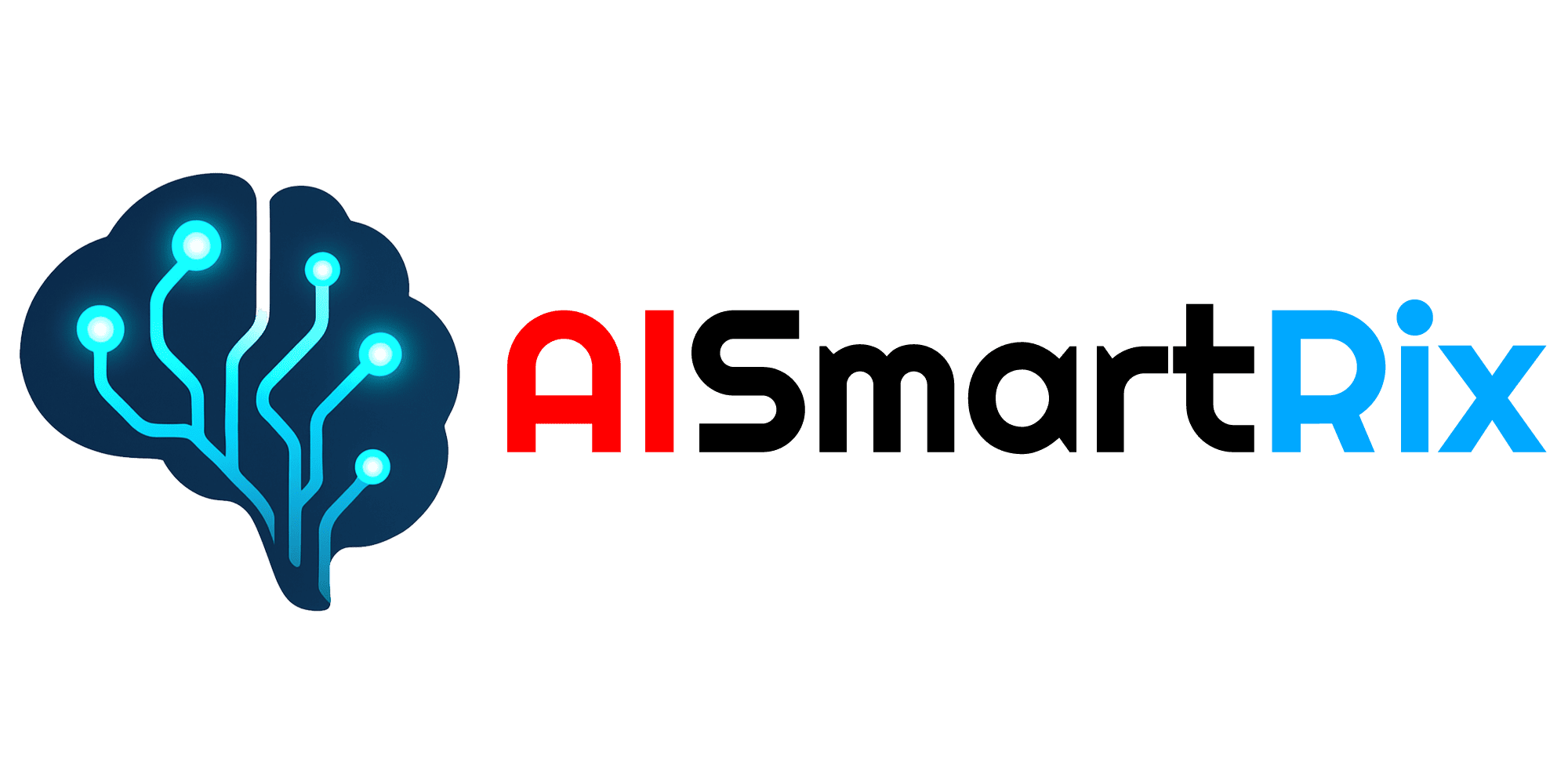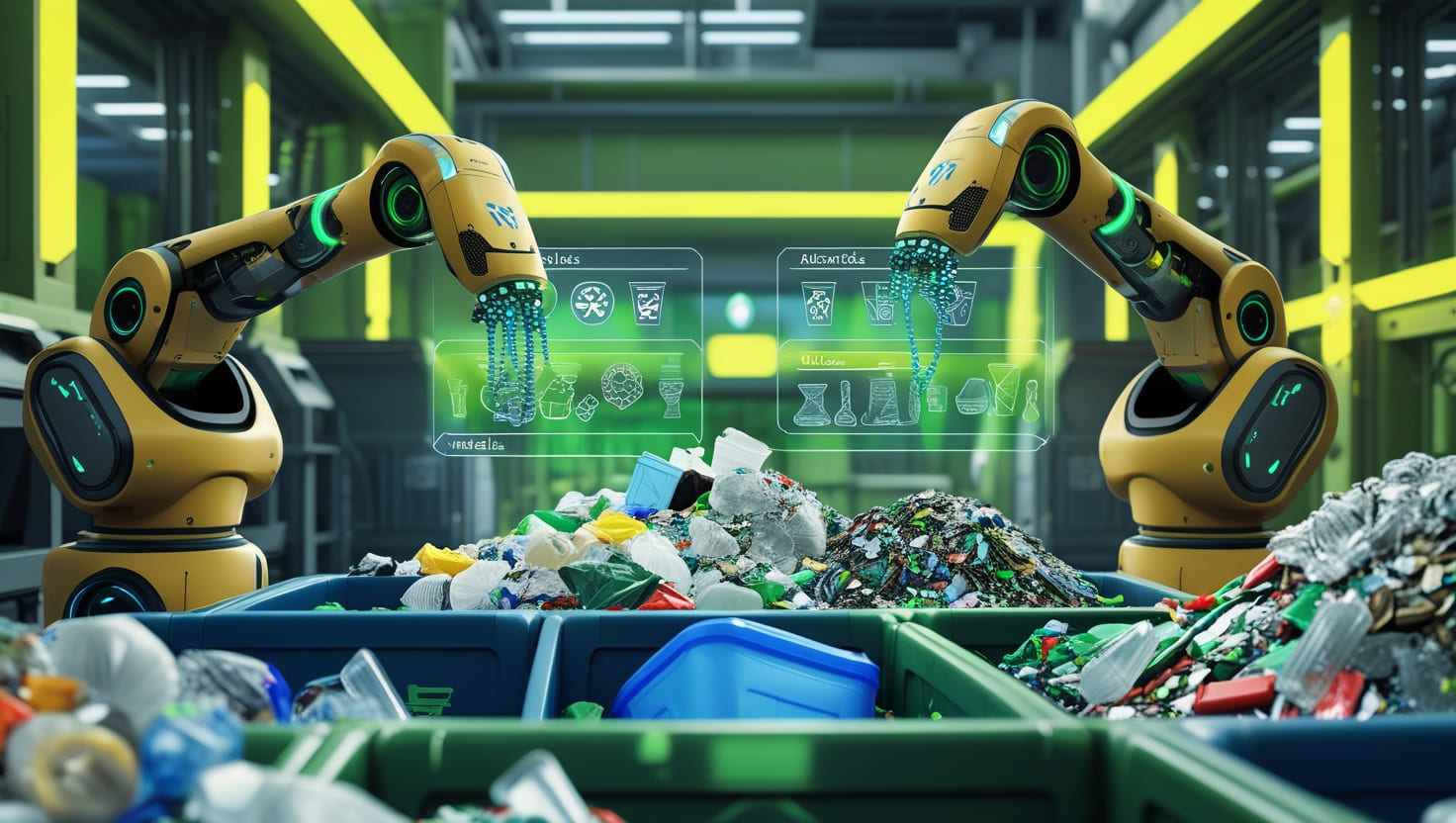As global waste levels continue to rise at an alarming rate, finding efficient, scalable, and sustainable solutions for recycling has become more urgent than ever. Traditional recycling systems, while valuable, face major challenges such as contamination, inefficiency, high labor costs, and limited sorting accuracy. Enter AI-powered smart recycling solutions — a rapidly advancing sector that is transforming how we handle waste management and environmental sustainability.
In this comprehensive guide, we will explore how artificial intelligence is revolutionizing the recycling industry, the technologies involved, the real-world impact of smart recycling systems, and why AI-powered recycling solutions are becoming critical for a greener future.
The Growing Global Waste Crisis
Every year, billions of tons of waste are generated globally, much of which ends up in landfills or oceans, contributing to pollution and climate change. Some key statistics highlight the urgency:
- Global municipal solid waste generation is expected to grow to over 3.4 billion tons annually by 2050.
- Recycling rates remain low due to contamination and inefficient sorting.
- Landfills contribute significantly to greenhouse gas emissions, especially methane.
Effective waste management and improved recycling processes are essential to mitigating environmental harm and promoting a circular economy — one where materials are reused, repurposed, and recycled to minimize resource depletion.
The Limitations of Traditional Recycling Methods
While traditional recycling efforts have made significant contributions, they suffer from various limitations:
- Human error in sorting: Manual sorting is time-consuming, inconsistent, and costly.
- Contamination: Improperly sorted or contaminated materials often lead to entire batches being rejected.
- Limited material recognition: Current systems may fail to distinguish complex packaging materials or composite items.
- Labor shortages: Skilled workers for recycling centers are often in short supply.
These challenges create a critical need for smart recycling solutions that leverage advanced technologies for more efficient and accurate sorting.
How AI Is Revolutionizing Recycling
Artificial intelligence introduces an entirely new level of precision, efficiency, and scalability to recycling operations. Here’s how AI-powered smart recycling systems work:
1. Advanced Image Recognition
AI-powered cameras and sensors use computer vision to analyze waste streams in real-time. Sophisticated neural networks identify:
- Plastics (PET, HDPE, LDPE, etc.)
- Metals (aluminum, steel)
- Glass (clear, colored)
- Paper and cardboard
- E-waste and batteries
- Composite materials
The accuracy of material identification far exceeds that of manual sorting, reducing contamination rates and improving recycling quality.
2. Robotic Sorting Arms
Once identified, robotic arms equipped with AI algorithms and machine learning models quickly and accurately sort materials into appropriate bins or processing lines. These robots can:
- Operate 24/7 without fatigue.
- Make real-time decisions based on object shape, texture, and composition.
- Adapt to new materials as the AI models continue learning.
3. Predictive Analytics
AI systems analyze historical data to:
- Optimize sorting sequences.
- Predict material volumes.
- Identify bottlenecks in recycling facilities.
- Suggest operational improvements to boost efficiency.
4. Contamination Detection
AI sensors detect contamination in recycling streams, automatically removing non-recyclable or hazardous materials to protect processing equipment and ensure material purity.
5. Smart Collection and Routing
AI-powered route optimization helps waste collection vehicles:
- Reduce fuel consumption.
- Minimize collection times.
- Avoid overflowing bins.
- Adapt dynamically to changing traffic or demand conditions.
6. Consumer-Facing Smart Bins
AI-integrated smart bins installed in public spaces, offices, and homes guide users to deposit waste correctly using:
- Object recognition cameras.
- Interactive touchscreens.
- Instant feedback to improve recycling accuracy.
Benefits of AI-Powered Smart Recycling Solutions
1. Higher Sorting Accuracy
AI dramatically improves sorting precision, reducing contamination and increasing the value of recyclable materials.
2. Lower Operational Costs
Automation reduces reliance on manual labor, cutting costs for municipalities and recycling companies.
3. Increased Recycling Rates
With cleaner and more efficiently sorted materials, more waste can be successfully recycled instead of being sent to landfills.
4. Enhanced Environmental Impact
AI contributes directly to carbon footprint reduction by promoting resource conservation and minimizing emissions from waste mismanagement.
5. Real-Time Monitoring & Optimization
AI enables continuous performance tracking, immediate issue detection, and data-driven decision-making for facility managers.
6. Scalability & Flexibility
AI-powered systems can adapt to changing waste streams and material compositions without major hardware upgrades.
Real-World Applications of Smart Recycling Solutions
Municipal Recycling Centers
Cities around the world are implementing AI-powered sorting lines to handle increasing waste volumes with greater efficiency.
Industrial & Commercial Facilities
Factories, office buildings, and shopping malls are adopting smart waste management systems to meet corporate sustainability goals.
Airports & Public Transportation
High-traffic areas utilize AI-driven recycling bins to manage complex waste streams from travelers and commuters.
Educational Institutions
Universities are using AI-powered recycling as both a practical solution and an educational tool to promote environmental responsibility.
Smart Cities
Smart recycling systems are being integrated into broader smart city initiatives, combining AI, IoT, and big data to create more sustainable urban environments.
The Role of AI in Building a Circular Economy
AI is crucial for achieving a true circular economy by:
- Facilitating closed-loop recycling systems.
- Enabling precise material recovery and reuse.
- Providing manufacturers with high-quality recycled inputs.
- Reducing dependence on virgin raw materials.
- Extending the life cycle of products and materials.
By optimizing every stage of the recycling process, AI helps close the loop between production, consumption, and waste management.
The Future of AI in Recycling
The potential for AI-powered recycling is immense. Here’s what the future holds:
1. Multi-Sensory Detection
Combining visual, infrared, X-ray, and hyperspectral sensors will allow AI systems to identify materials with near-perfect accuracy.
2. Real-Time Blockchain Tracking
Blockchain integration may enable transparent tracking of recycled materials throughout the entire supply chain.
3. Fully Autonomous Recycling Plants
Future facilities may operate entirely with AI, robotics, and minimal human intervention, achieving maximum efficiency.
4. AI-Driven Consumer Apps
Mobile apps using AI and augmented reality may guide consumers on how to properly recycle complex products at home.
5. E-Waste & Rare Material Recovery
AI will play a growing role in safely extracting rare earth metals and valuable components from discarded electronics.
Challenges & Considerations
While AI-powered recycling offers numerous benefits, certain challenges remain:
- High initial costs for AI equipment and training.
- Technology adaptation for diverse global waste streams.
- Data privacy concerns with consumer-facing smart bins.
- Job displacement concerns for manual laborers.
- Ongoing maintenance and system calibration requirements.
With continued innovation and responsible policy frameworks, many of these barriers can be effectively addressed.
Conclusion
Smart recycling solutions powered by AI are transforming waste management into a highly efficient, precise, and scalable system capable of addressing one of humanity’s most pressing environmental challenges. By improving sorting accuracy, reducing operational costs, and maximizing resource recovery, AI-powered recycling systems are paving the way toward a cleaner, greener, and more sustainable planet.
As governments, businesses, and consumers continue to embrace these advanced technologies, the dream of a truly circular economy becomes increasingly achievable.
What are your thoughts on AI-powered recycling? Do you believe it’s the key to solving our global waste problem? Share your opinions in the comments below!





